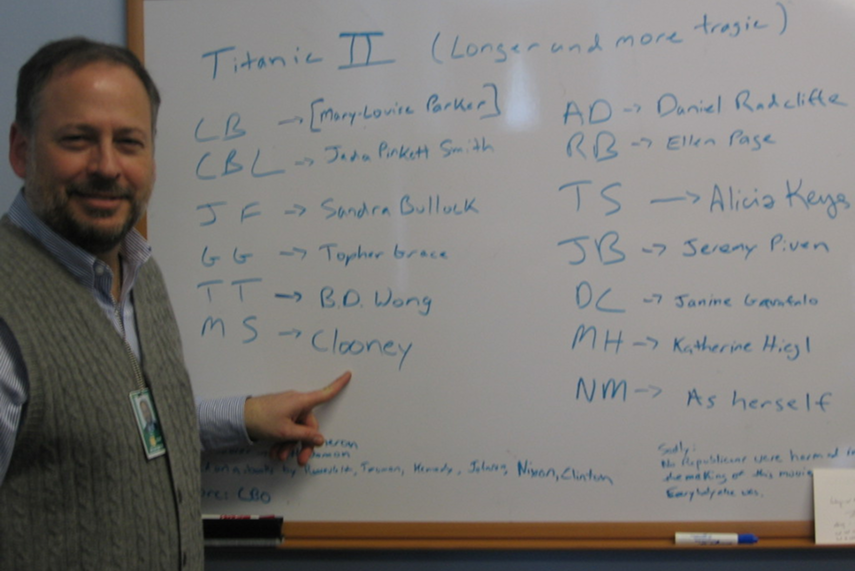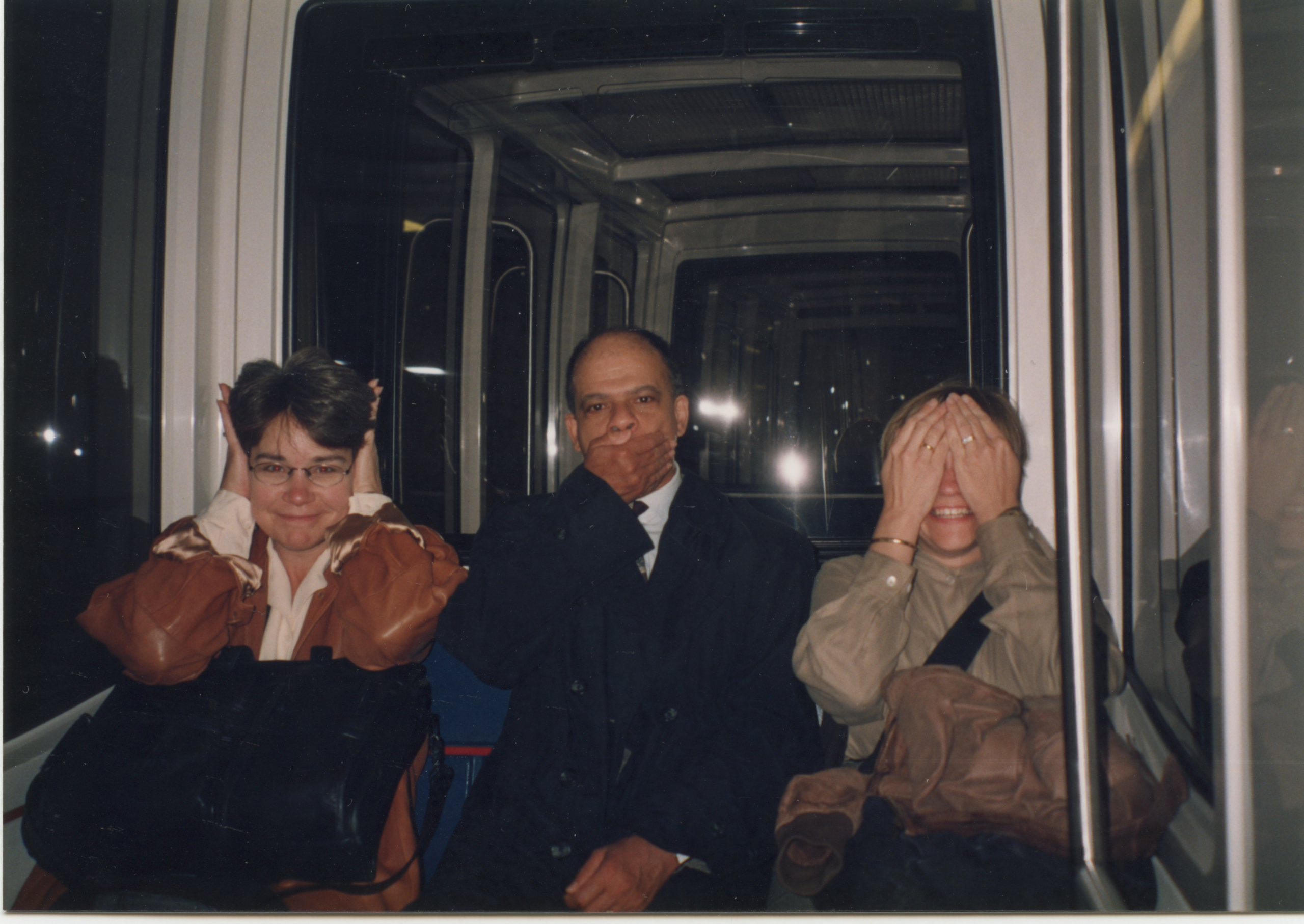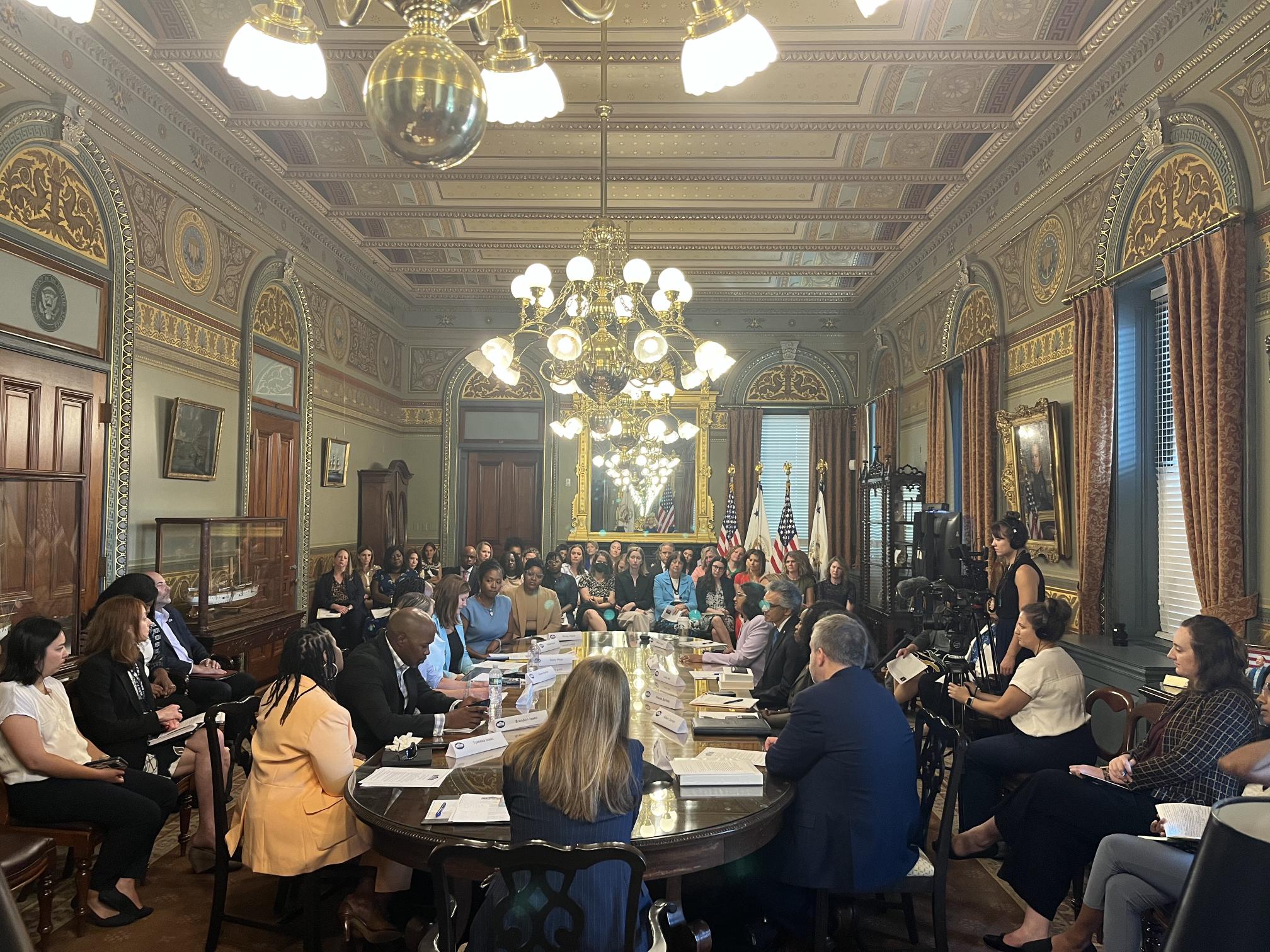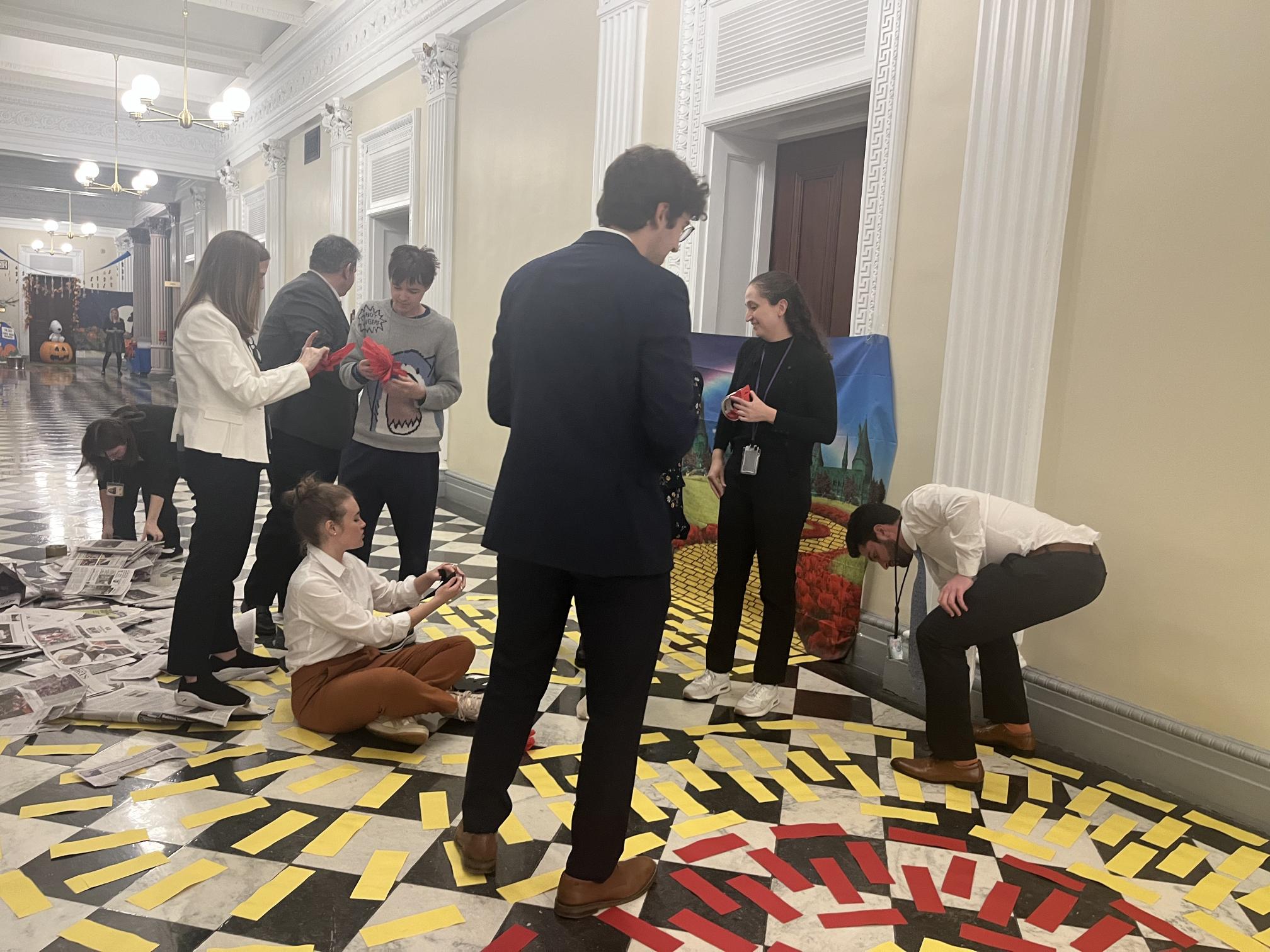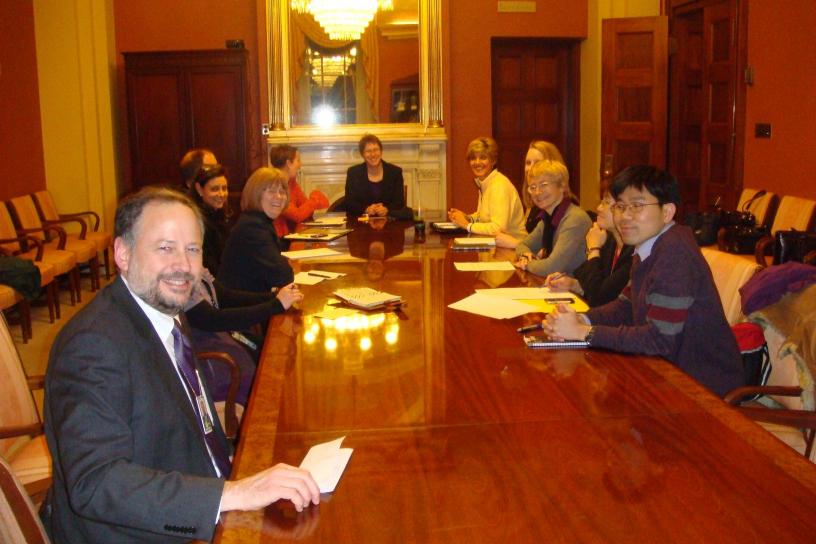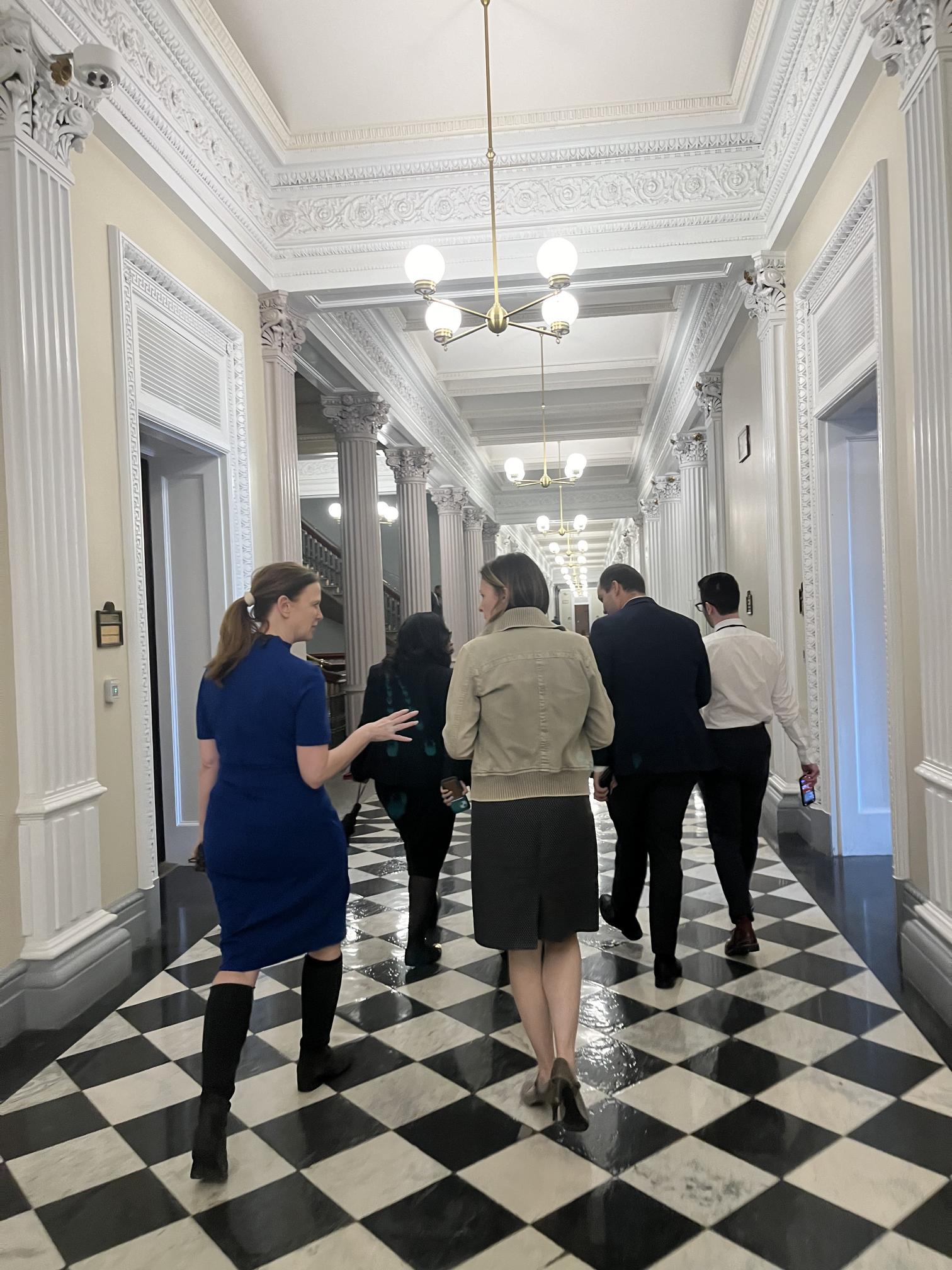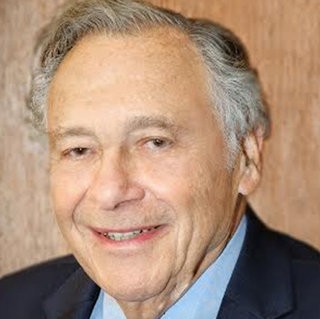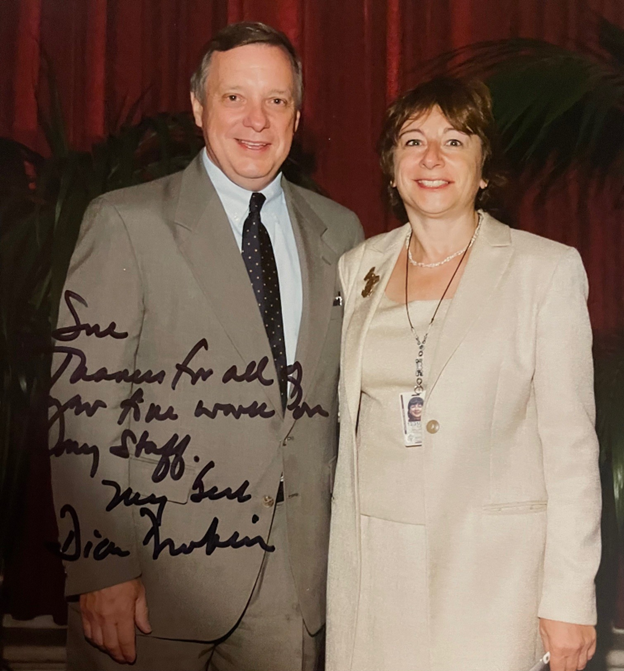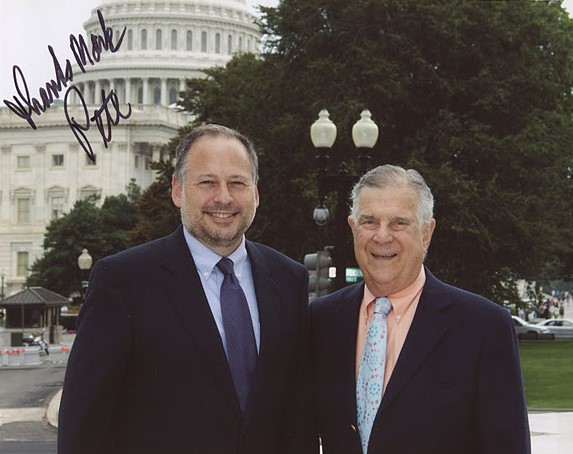PLACEMENT OFFICE
After three months of intense orientation and interviewing for placements, fellows began their positions in Congressional and Executive offices ready to start contributing.
“It was a health policy theme park of incredible eye-opening experiences every day.”
–Jay Himmelstein, 1991-92 fellow
Continue scrolling to explore fellows’ experiences in their placements — how they bring expertise, navigate life in the office, influence legislation, and carry lessons learned into their work — or use the buttons below to jump to a particular section.
Bringing Expertise
Life in the Office
Impacting Legislation
Lessons Learned
Bringing Expertise to Their Placement
Unlike many Congressional staffers who are hired as recent college grads, RWJF fellows bring a wealth of experience into their roles that puts them in a unique position to contribute to the development of health policy and extrapolate potential ramifications of proposals under consideration.
Life in the Office
“It was like my medical internship: I would work around the clock on things I barely understood, supervised by super smart people who had very little time to supervise me.”
—Eugene Rich, 2006-07 fellow
Continue scrolling or use the buttons below to navigate between the many aspects of fellows’ life in their placement office — what they learned, what surprised them, what their days looked like, and so much more.
The First Days
A Day in the Life
In the Seat of Federal Policy
One-of-a-Kind Memories
It’s a Team Effort
Working Across the Aisle
The First Days on the Job
The transition from a mid-career professional to a brand-new staffer in a bustling office was a startling shift for many fellows. The first days were often overwhelming, humbling, daunting, exciting, or any combination of emotions. In some cases, fulfilling assigned tasks meant a complete mindset shift from politically neutral, heavily sources research to ultra concise, on brand messaging for the breakneck pace of the Hill environment.
A Day in the Life
While there was no average day in their placements, fellows could always count on a packed day, touching on dozens of issues. Fellows worked on tasks big and small — from drafting legislation and organizing hearings to printing nameplates and making copies — they did whatever tasks their offices needed accomplished.
Some common tasks included:
- ^Constituent meetings;
- ^Researching, analyzing, and summarizing issue areas;
- ^Drafting legislation;
- ^Meetings with health staff in other offices, and;
- ^Attending briefings and committee meetings.
I wrote a number of speeches, assisted with several press releases, worked with witnesses from New Jersey who would be testifying before the subcommittee and did some constituency work (primarily with institutions, large professional organizations, and state, county, and local public officials).”
–John Hershey, 1975-76 fellow
Whether on the Hill or in the White House, one memorable aspect of life as a fellow was the long days and late nights leading up to important deadlines.
With the amount of time fellows spent working on complex issues with the staffs in their placement offices sometimes the work devolved into silliness.
When the passage of the Affordable Care Act looked unlikely in early 2010, the Senate Ways and Means committee took a break from brainstorming how to get the bill through the Senate and pitched a movie based on their perceived failure. They named their fictional film Titanic II (Longer and more tragic), and chose celebrity actors to play each of them. In this photograph, 2009-10 fellow Mark Schwartz points to who would play him in the fictional film.
In the Seat of Federal Policy
Fellows come from around the country to work in the seat of federal legislation and policy. Connections through the reputation of the fellowship often opened doors to exclusive and once-in-a-lifetime opportunities.
One-of-a-Kind Memories
Amid the bombardment of once in a lifetime opportunities, many fellows can recall specific moments that stood out. Whether a meeting with a particular constituency, a policy that would go on to become legislation, or an unanticipated opportunity to present information to an important recipient, these memories made each fellow’s experience one of a kind.
It's a Team Effort
While senators, representatives, and executive branch leaders are the recognizable faces in the political world, staffers are the backbone of the Hill and the White House, providing elected officials with the information necessary to make an informed decision on bills. RWJF fellows worked alongside career staffers to support the office agendas, in some cases being completely integrated into the team despite their brief tenure.
Despite and because of their long days and nights working together, fellows bonded with the staff in their placements and found opportunities for fun admist the intensity of the policymaking process.
Working Across the Aisle
Fellows have had a unique view to the inner workings of the Hill over the past 50 years. Media has often focused on the partisan nature of politics, but fellows’ experiences reveal a much more nuanced story. While it’s true the political climate has become increasingly partisan in the last half century, fellows over the years have seen numerous examples of staffers and elected officials reach across the aisle in pursuit of compromise to improve the health of the nation.
–Andrew Nichols, 1977-78 fellow
In this video, Burton Edelstein (1996–97 fellow) shares how lessons from congressional leadership helped him frame oral health as a military readiness issue to win support for dental benefits.
Behind the Scenes
Some placements offered a unique insight into the behind-the-scenes politics that are rarely discussed, but are crucial to the development of legislation.
“My job was not to be the front guy but to help move the pieces—which is what health policy is all about.”
–Art Kellerman, 2006-07 fellow
Impacting Legislation
50 Years of Impact
Over the last 50 years of this program, RWJF Health Policy Fellows have worked on and impacted, in small and large ways, the majority of health legislation that has moved through Congress.
–Marion Ein Lewin, Program Director 1987-2001
Attendees at the 50th annual alumni retreat weekend.
Recognizing Fellows' Work in Their Placements
Not only do fellows benefit from their placement experience, but their placement office benefits from their presence and work. Explore a sampling of thank you notes from the people for whom the fellows worked.





